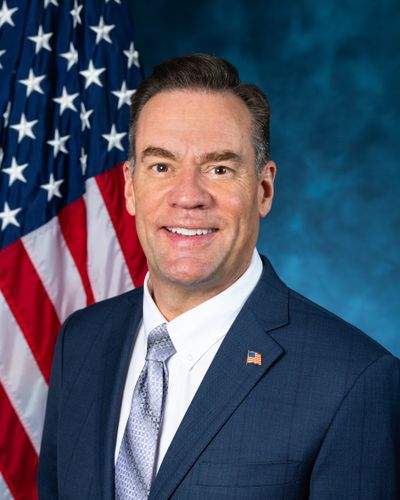As more Republicans embrace congressional earmarks, North Idaho remains an exception

WASHINGTON – Two years after congressional Democrats ended a decadelong moratorium on earmarks, a growing number of the Republicans who now control the House have embraced the revamped system of federal grants to fund local projects across the country, including in Eastern Washington.
Once derided as “pork-barrel spending” and banned over concerns that they enabled graft and wasted taxpayer dollars, only about half of House Republicans chose to request earmarks when they returned in 2021 with new measures meant to improve transparency.
This year, nearly 70% of GOP lawmakers in the lower chamber requested what are officially called “community project funding requests,” according to data from the House Appropriations Committee. Reps. Cathy McMorris Rodgers of Spokane and Dan Newhouse of Sunnyside were among them.
House lawmakers from Washington state have requested more than $465 million in federal earmarks to fund local projects across the state, according to data compiled by Daniel Schuman, a government transparency advocate at the nonprofit Demand Progress Education Fund. Meanwhile, Rep. Mike Simpson is the sole member of Idaho’s all-GOP delegation to participate in the process, requesting more than $103 million for his district, which includes most of Boise and the state’s eastern half.
Rep. Russ Fulcher, who represents North Idaho, and the Gem State’s two senators, Mike Crapo and Jim Risch, have all opted out of requesting earmarks since the practice returned. When Congress passed a bill to fund the government in December, Risch reiterated his opposition to earmarks, which he slammed as “pet project giveaways.”
Simpson responded to such criticism in an article he published earlier that month, writing that, “The idea of banning earmarks has long made a nice soundbite, but it creates several false narratives that don’t serve the American people.”
“Make no mistake, the federal government has a spending problem,” wrote Simpson, who sits on the House Appropriations Committee. “But congressionally directed spending is not more spending. It is simply a way for Members to prioritize projects in their own districts within existing budget limits.”
In the past two years, the sum of all earmarks was capped at 1% of total discretionary spending, which excludes mandatory spending on programs such as Medicare and Social Security. This year, House Republicans tightened restrictions and lowered that cap to 0.5%, suggesting total earmark spending in the next fiscal year may be around half of the $15.3 billion that was dedicated to community projects in the omnibus spending bill Congress passed in December.
Washington’s two Democratic senators, Patty Murray and Maria Cantwell, have each requested funding for dozens of projects, some of which their House counterparts have also requested. Such joint requests have historically improved a project’s chances of getting funded. The Senate Appropriations Committee, which Murray leads, is expected to compile all senators’ earmark requests in the coming weeks.
McMorris Rodgers, who chairs the powerful Energy and Commerce Committee, has requested funding for 14 projects in Eastern Washington, totaling nearly $52.7 million. Her largest request is $12.4 million for campus safety improvements at Washington State University in Pullman, which she justifies by citing “recent events in Moscow, ID,” an apparent reference to the killings of four University of Idaho students in November.
Other requests by the Spokane Republican include $3 million to help the Confederated Tribes of the Colville Reservation upgrade the water system in Inchelium, nearly $4 million for the city of Spokane to build a roundabout at the intersection of Freya Street and Palouse Highway and $3.5 million to upgrade the Pullman-Moscow Regional Airport terminal.
Newhouse, who sits on the House Appropriations Committee, has requested a total of $61 million for 15 projects in his central Washington district. His biggest request is $12 million for the city of Pasco to build a water treatment plant that uses algae to convert agricultural wastewater into natural gas.
Simpson has asked for $103.1 million for 15 projects, headlined by $37.7 million for the city of Gooding to replace the walls of a channel that flows through the town. The existing walls, built in the 1930s, have failed and increased flood risk, according to Simpson’s justification.
The Republican-led House and Democratic-majority Senate will need to compromise on a bill to fund the government by the start of the next fiscal year on Oct. 1. If lawmakers miss that deadline, as they often have in recent years, they could pass a stopgap spending bill to fund the government at current levels until they agree on a new spending bill, which would include the new earmarks.
Correction: The original version of this story misstated the date when the federal fiscal year begins. It begins on Oct. 1, 2023.